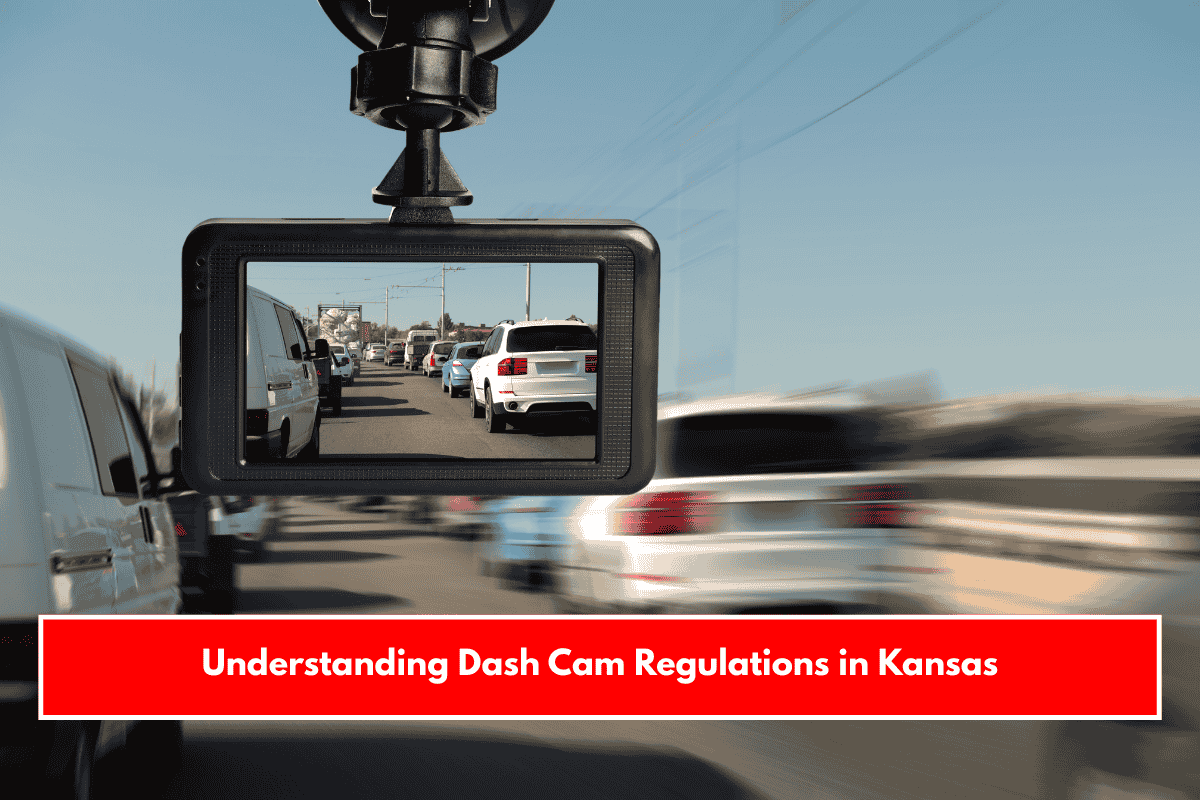Dash cams are increasingly popular in Kansas, providing drivers with valuable evidence in the event of accidents, disputes, or insurance claims. However, their use is governed by specific state laws and regulations that every driver should understand to avoid legal pitfalls and ensure their recordings remain admissible in court.
Legality of Dash Cams in Kansas
Dash cams are legal to own and use in Kansas. There are no state laws prohibiting the installation or operation of dashboard cameras in private vehicles. However, how and where you mount your dash cam, as well as how you record audio and video, are subject to important legal restrictions.
Mounting and Placement Rules
Obstruction of View
Kansas law is clear: it is illegal to drive any vehicle with any sign, poster, or nontransparent material on the front windshield, side wings, or windows that substantially obstructs, obscures, or impairs the driver’s clear view of the highway or any intersecting highway. Dash cams, which are not transparent, fall under this regulation.
- Windshield Mounting: You may mount a dash cam on the windshield or dashboard, but it must not significantly block the driver’s vision. Kansas law does not specify an exact size or location for dash cam mounts, unlike some states that allow a limited square-inch area. This means drivers must use discretion to ensure their dash cam is as unobtrusive as possible.
- Dashboard Mounting: Mounting on the dashboard is permitted, provided it does not interfere with the driver’s line of sight.
Best Practice: Place your dash cam low on the windshield, near the center or passenger side, or on the dashboard, to minimize obstruction and reduce the risk of being fined or cited for impaired visibility.
Audio and Video Recording Laws
Video Recording
- Recording video in public spaces, such as roads and highways, is generally legal in Kansas. There is no expectation of privacy for activities occurring in public view from a vehicle.
- Pointing a dash cam into private spaces, like someone’s home or yard, could violate privacy laws, so always keep your camera focused on the road.
Audio Recording
- Kansas is a one-party consent state for audio recording. This means that you can legally record conversations as long as at least one party involved in the conversation (such as yourself) consents to the recording.
- If you are recording audio with your dash cam and you are present in the vehicle, you do not need to inform passengers. However, if you cross into a state with stricter (all-party consent) laws, you must comply with those requirements.
Privacy Considerations
- Public vs. Private Spaces: Recording video on public roads is legal, but avoid aiming the camera at private property, which could be considered an invasion of privacy.
- Responsible Sharing: Blurring faces and license plates before sharing footage online is recommended to protect the privacy of individuals captured incidentally.
- Data Retention: Only retain footage as long as necessary for legal or insurance purposes. Delete or overwrite files regularly to minimize the risk of misuse.
Use of Dash Cam Footage in Court
- Admissibility: Dash cam footage is routinely accepted as evidence in Kansas courts, provided it is relevant, legally obtained, and authentic.
- Law Enforcement Access: Police may request dash cam footage during investigations. In some cases, a warrant may be required, depending on the circumstances.
Penalties for Non-Compliance
- If your dash cam is found to substantially obstruct your view, you could be fined or cited under Kansas law.
- Improper use of audio recording features, especially when crossing into states with different consent laws, could also result in legal consequences.
Key Dash Cam Regulations in Kansas
| Regulation Area | Kansas Law/Best Practice |
|---|---|
| Mounting Location | Windshield/dashboard allowed; must not obstruct driver’s view |
| Audio Recording | One-party consent required |
| Video Recording | Allowed in public spaces; avoid filming private property |
| Court Admissibility | Footage is admissible if legally obtained and relevant |
| Police Access | Police may request footage; warrant may be needed in some cases |
| Penalties | Fines/citations for obstructed view or privacy violations |
Dash cams are a valuable tool for Kansas drivers, but their use is subject to clear legal guidelines. Mount your camera where it does not obstruct your view, respect privacy laws, and ensure you comply with audio recording consent rules. By following these regulations, you can benefit from the protection dash cams offer while staying on the right side of the law.
Sources:
- https://www.expertmarket.com/dash-cams/dash-cam-laws-by-state
- https://www.redtigercam.com/blogs/news/dash-cam-safety-legal-protection
- https://mylolowcountry.com/usa-laws/understanding-dash-cam-regulations-in-kansas/
- https://facit.ai/insights/dash-cam-laws-by-state
- https://matrackinc.com/dash-cam-laws-by-states/











